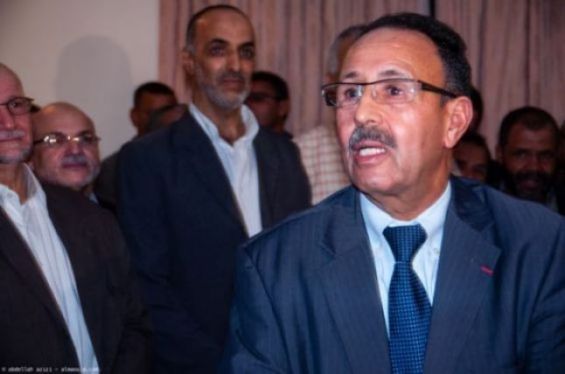Moroccan miners, labourers and railwaymen led for years the same fight demanding nothing but France's recognition. Abdallah Samate, president of the Moroccan Miners Association of Nord-Pas-de-Calais region (AMMN), was part of this struggle. Since the creation of AMMN in 1989, this former miner from Taroudant who is now 73-year-old, fought to be recognized and compensated for the discrimination he and other miners from the Maghreb region were subjected to by the French.
«I worked for five years in the Barrois Pecquencourt and I have always felt inferior to the French. That's why we were recruited, thinking that a Moroccan miner is not going to dare fight against a huge company such as Charbonnade de France», he told La Voix du Nord in 2013.
Five years later, Samate recalled the same words when speaking to Yabiladi : «In the 1960s, France needed labourers to extract coal. The former French, Polish and Italian miners did not want to send their children there because the working conditions were too dangerous, but also because there was no future for them there. The closure of the mines was scheduled well before 1960».
Fighting against discrimination
After all, the naivety of Moroccan miners was appreciated by the company. «They wanted miners who would work hard without complaining and for little money in exchange. Moreover, the French engineers came to recruit labourers targeting the Moroccan countryside (especially in the regions of Agadir, Marrakech, Ouarzazate and Guelmim), where most of these men had never been to school», recalls Abdallah Samate who came to France in 1963, at the age of 18 years old.
«At the time, you had to be 22 years old to be able to be there. At home, we did not have a family record book, no birth certificate. So I lied about my age so I could leave», he said.
Alongside 150 other young men, Abdallah arrived in Marseilles by sea, then he went to the capital by train. «Once in Paris, each one of us was given a piece of bread, a bottle of lemonade and some chocolate. When we arrived in Henin-Beaumont, we were sent to different cities. I went to Montigny-en-Ostrevent».
Docile, yes, but not blind. After a serious accident at work, Abdallah Samate joined a trade union namely the General Confederation of Labor (CGT), and started to «open his eyes». «Coming from a country where we were lacking a lot of things, we were happy with the little things we were given in France, that's why we were not very demanding. But I was a Moroccan who resisted and that did not like the way things were managed. We should not set an example to others».
A commitment hailed by the State
The young trade unionist was also aware of the discrimination the miners were facing : «When Moroccans were no longer needed, they were sent back home. We did not have the same status as other miners. Whereas, when sick, hurt or unable to work in mines, French, Italian and Polish miners were sent to other positions and not fired».
In 1987, a two-month strike was launched by Moroccan miners to claim more rights. The Moroccan Miners Association of Nord-Pas-de-Calais was created two years later. «I continue to fight to overcome the mistakes that the collieries have committed,» insists Abdellah Samate, based in Aniche, a small town that has long lived off the exploitation of coal.
His fight, although not over, was met with a response by high authorities within the State: in 2009, he was distinguished as Knight of the Legion of Honor by France. A distinction that sounds like a first step towards recognition.





 chargement...
chargement...












